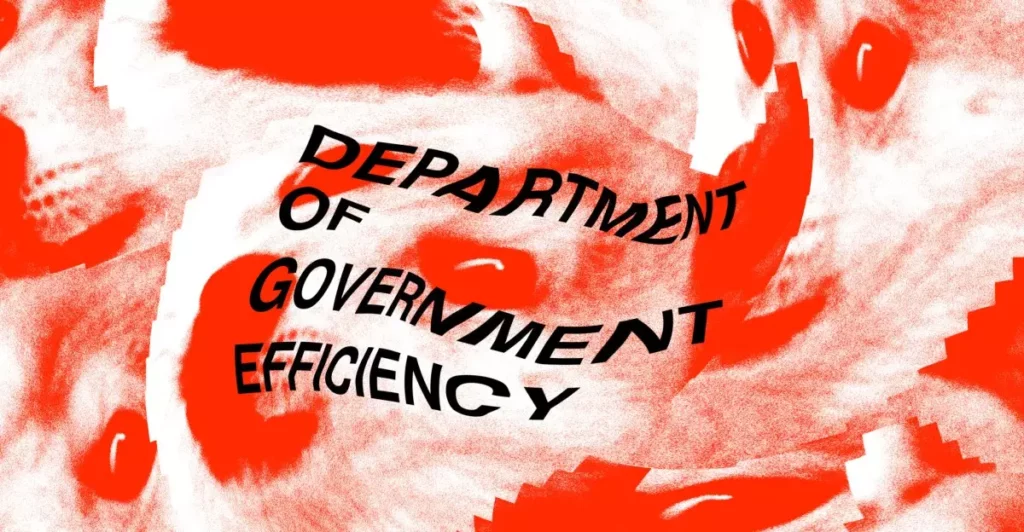The recent announcement from the Department of Government Efficiency (DOGE) about launching a “mega API” for Internal Revenue Service (IRS) data has ignited fierce discussions among technology enthusiasts, policymakers, and civil rights advocates. This proposal, cloaked in the language of efficiency, raises fundamental questions about the implications of centralizing access to Citizen’s sensitive financial information. Supporters may laud the project for its innovative spirit, yet a critical examination reveals several alarming realities that paint a picture quite different from the rosy projections being advertised.
The Illusion of Quick Fixes
DOGE’s ambitious timeline of just 30 days to implement this mega API is not only unrealistic; it borders on misleading. The complex nature of IRS data—riddled with nuances and variability—requires thorough understanding and expertise to manage effectively. Those at the helm, such as DOGE members Gavin Kliger and Sam Corcos, may possess optimism, but their lack of genuine experience suggests a dangerous oversimplification of the challenges at play. Tight schedules rarely lead to meaningful outcomes when dealing with sensitive data that represents the livelihood of millions of taxpayers. When hastily launched, such initiatives often become breeding grounds for error, potentially jeopardizing the very citizens they’re meant to serve.
The Ethical Quagmire of Third-Party Partnerships
What raises even more eyebrows is DOGE’s tentative collaboration with private entities, specifically companies like Palantir. Known for a history of concerning practices surrounding data use and surveillance, Palantir’s involvement could open dangerous pathways into the misuse of sensitive tax information. We must critically consider the consequences of filtering IRS data through corporate hands that prioritize profit and efficiency over citizen welfare. While the potential for technological advancements exists, the risks inherent in aligning government data with private interests threaten to erode public trust, inviting abuses of power rather than promoting transparency.
Bipartisan Pushback and Public Concern
The bipartisan concern surrounding this initiative, highlighted by vocal opponents like Senator Ron Wyden, signifies a growing distrust in how government entities manage taxpayer data. A scrutiny that spans political divides shows that people are increasingly aware of the potential for unauthorized access and misuse of the IRS data. Data privacy should transcend party lines; the danger it poses is universal. These dissenting voices in Congress emphasize an essential tension between technological innovation and the necessity for regulatory oversight.
A Shift in Government Data Philosophy
The push for a mega API reflects a broader ideological shift in how government agencies may begin to approach their data management responsibilities. This proposal is not just an IT upgrade; it’s a stark pivot towards treating individual data as a resource to be exploited rather than protected. The fundamental rights of individuals—including privacy and informed consent—risk being overlooked in the name of modern efficiency, prompting dangerous precedents that could reshape the contemporary understanding of governmental authority.
Call for Ethical Frameworks in Data Management
As discussions surrounding the mega API unfold, it is paramount for advocates of civil rights, privacy, and ethical governance to rally for frameworks geared toward accountability in data management. Rather than simply rushing towards modernization, we must insist on a comprehensive examination of the proposal’s long-term effects on individual rights. The wealth of sensitive financial information should be treated with the utmost care, acknowledging the potential pitfalls of using technology as a mere means of expediency.
The tension between innovation and ethical oversight creates a landscape fraught with peril, but it also provides an opportunity for improvement. As citizens demand greater involvement in governance, it is our responsibility to challenge initiatives like DOGE’s mega API that prioritize speed over careful consideration. In ensuring that solutions to complex governmental challenges respect citizen privacy, we can navigate toward a more constructive and accountable future. The conversation is only beginning, and it’s essential to keep the voices of those affected at the forefront, raising questions rather than accepting easy answers.









Leave a Reply